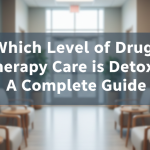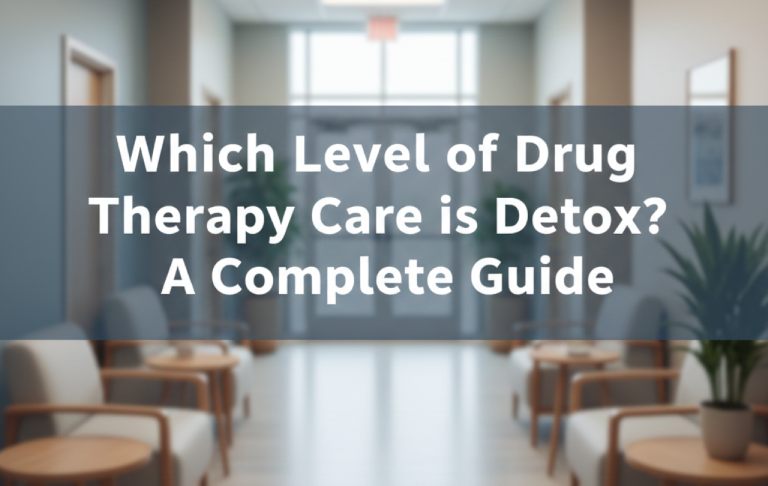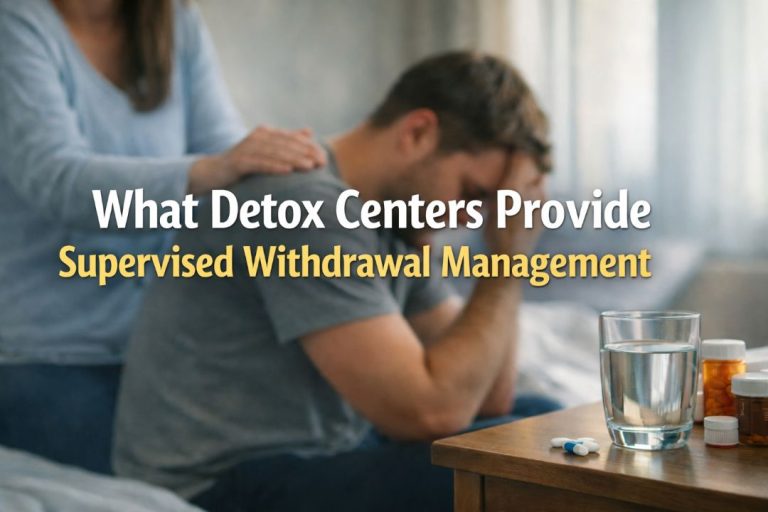When someone is ready to take the first step toward recovery, detox treatment is often the beginning of that journey. Detox helps the body safely remove harmful substances, making it possible to start rehab with a clear mind and a stronger foundation. At DeLand Treatment Solutions, we understand how overwhelming this step can feel, which is why our professional and supportive approach focuses on both safety and comfort.
In this guide, we’ll walk through the essentials of drug and alcohol detox, what happens at a detox rehab center, and why choosing the right facility in DeLand, Florida, can make all the difference.
What is Detox Treatment?
Detox treatment is a process of emptying deleterious compounds, such as drugs or alcohol. It makes people deal with withdrawal symptoms and prepares them to achieve long-term recovery. Most individuals think that they are capable of doing the detoxification at home, and detoxification at home without the supervision of any medical experts is dangerous and even life-threatening.
In an inpatient rehabilitation facility, there is around-the-clock support, along with medical treatment and a controlled setting so that the detox can be done safely and efficiently.
Why Detox is the First Step in Recovery
The body must also be clean before commencing with therapy or any other treatment regimen.
Detox provides the basis of recovery as:
- Moderating health fitness
- Less risk of dangerous withdrawal risks
- To improve mental clarity for the upcoming treatment option.
Detox is imperative because without it, it may be almost impossible to concentrate on any counseling or other behavioral therapies, as cravings and withdrawal tend to overwhelm the recovery process.
Types of Detox Programs
Every detox is not equal. Different measures of existence can be advised by a rehab facility based on the type of substance involved in the addiction, general health status, and the level of addiction.
The most widespread ones are the following:
Medical Detox – Directed by doctors and nurses using medications to mitigate withdrawal.
Social Detox – This is a non-medical supportive setting with an emphasis on monitoring and emotional support.
Inpatient Detox – Where Patients live in an Inpatient program.
Outpatient Detox – This is where patients stay at home, and they check in to receive treatment and monitoring.
Common Substances That Require Detox
Some drugs produce tremendous physical addiction, and therefore, detox is a prerequisite to recovery.
These include:
- Alcohol
- Opioids (heroin, oxycodone, Fentanyl)
- Xanax (or Valium, Ativan)
- Excitants (cocaine, methamphetamines)
Each of these substances has a different impact on the body, and withdrawal schedules and regimes differ.
What to Expect During Detox Treatment
The detox process when entering a rehab center can be separated into three essential stages:
Evaluation – Medical personnel undertake evaluations on health, substance use, T-box, and withdrawal risks.
Stabilization Pulling – Medical and emotional care is provided to patients as symptoms of withdrawal are addressed.
Transition to Treatment – When detoxing is over, patients enter a treatment and long-term recovery program.
100% Confidential Support is Available 24/7
No matter what you’re going through, you’re not alone. Our dedicated team is here to provide a safe, judgment-free space where you can talk openly and honestly. Whether you need emotional support, resources, or just someone to listen.
We’re here for you—completely confidential and always respectful of your privacy. Call us today!
Managing Withdrawal Symptoms
Withdrawal is one of the largest concerns that people have regarding detox. Depending on the substance, the symptoms may vary and be either mild or severe.
Examples of them are:
Anxiety, Tremors, Seizures: Alcohol withdrawal
Muscle pains, Nausea, and Sleeplessness: Opioid withdrawal
Benzodiazepine Withdrawal: Withdrawal symptoms, nervousness, seizures, irritability
Withdrawal (Stimulants): Depression and fatigue, craving, avoidance of the same
Withdrawal medications, along with holistic treatment, are utilized in a rehab center to make the process as safe and comfortable as possible.
Benefits of Detox in a Rehab Center
The benefits of selecting the rehab as the detox place of choice are enormous:
- Preventive medical care to stop complications
- Moral aid in the hardships
- Protected surroundings that free it of triggers and temptations
- Easy entry into therapy programs and aftercare programs
This disciplined method gives a better hope of sustained recovery as opposed to trying to do it at home during detox.
How Long Does Detox Last?
Detox can be long or short, and it depends on the substance a person is using and on the person. On average:
Alcohol: 3 7 days
Opioids: 4 to 10 days
Benzodiazepines: up to 2 weeks, or more
Stimulants: 1- 2 weeks
It should also be borne in mind that detox is only the preliminary part. Healing is achieved by treatment and counseling, and lifestyle modification.

Life After Detox: Continuing Treatment
Since detox is complete, that is a feat, but more is needed in the long-term recovery. A treatment center usually offers an ongoing treatment that includes:
- Inpatient rehabilitation programs provide daily structure and support for individuals during their recovery.
- Flexibility in outpatient treatment on an outpatient basis at home
- Treatments such as cognitive behavioural therapy CBT, dialectical behaviour therapy DBT, or group counseling.
- Relapse-preventive planning as an aftercare strategy
Such programs assist in developing coping abilities, solving underlying problems, and developing a healthier way of life.
When to Consider Detox Treatment
When you or a relative develops symptoms of dependency like craving, withdrawal symptoms or loss of control, you should seek the attention of a professional. A detox treatment rehabilitation center provides a safe method of initiating the healing process and decreases the dangers of an unplanned self-detox.
Detox treatment is essential to recovering from alcohol and drug addiction. A seasoned rehab facility provides a recipient with watched over care, psychological support, and a secure place that teaches them to recovery lasting changes. Though detox can be a painful experience, it’s the cornerstone for creating a healthier and substance-free existence.
If you or someone you know is struggling, there is help. Visit DeLand Treatment Solutions today.
FAQs About Detox Rehab Center
How long does detox usually take?
Detox length varies depending on the substance and individual factors. Most detox programs last between three and ten days. The process is tailored to each person’s needs to ensure safety and effectiveness.
Is detox painful?
Detox can cause discomfort, but at DeLand Treatment Solutions, medical staff manage symptoms with medications and supportive care. This makes the process safer and less overwhelming.
Can I detox at home?
Detoxing at home is not recommended, especially for drugs or alcohol. Withdrawal can be dangerous and unpredictable. A supervised setting like DeLand Treatment Solutions ensures safety and reduces risks.
What happens after detox?
After detox, patients transition into treatment programs that focus on therapy, education, and relapse prevention. This step is vital for building long-term recovery skills.
Lorem ipsum dolor sit amet, consectetur adipiscing elit. Ut elit tellus, luctus nec ullamcorper mattis, pulvinar dapibus leo.





















